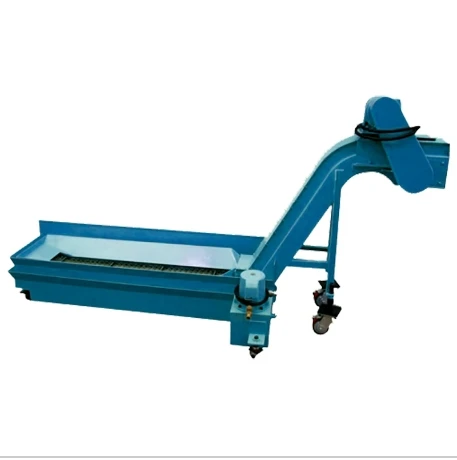Efficient Chip Conveyor Solutions for Modern Manufacturing and Automation Needs
The Evolution and Importance of Chip Conveyors in Modern Manufacturing
In the fast-paced world of manufacturing, efficiency and productivity are paramount. One critical component that has evolved significantly in recent years is the chip conveyor. Designed to handle the byproducts generated during machining processes, chip conveyors play a pivotal role in ensuring that manufacturing operations run smoothly and effectively.
Understanding Chip Conveyors
Chip conveyors are mechanical devices used to transport metal shavings, chips, and other waste materials produced during operations like milling, turning, and grinding. By removing these byproducts from machining centers, chip conveyors help maintain a clean working environment and prevent potential machine downtime.
The key efficiency of a chip conveyor lies in its ability to handle a variety of materials, including ferrous and non-ferrous metals, plastics, and composites. They come in various designs, including belt conveyors, screw conveyors, magnetic conveyors, and more, each tailored to meet the specific needs of different manufacturing processes.
Types of Chip Conveyors
1. Belt Conveyors These are the most common type of chip conveyors, featuring a flexible belt that transports materials from one location to another. They are easy to install and can be customized in terms of length and width to accommodate specific machine setups.
2. Screw Conveyors Utilizing a rotating helical screw blade, screw conveyors are ideal for transporting small and fine chips. They are particularly effective in enclosed systems, helping to minimize the escape of dust and debris into the workplace.
3. Magnetic Conveyors These conveyors employ magnets to lift and move ferrous materials. They are often used in environments where the handling of metallic chips is paramount, providing a reliable solution for shavings and scrap metal.
4. Elevator Conveyors Designed for vertical transport, elevator conveyors are useful when space is limited. They efficiently move chips from the machine to a disposal area, optimizing floor space in the manufacturing facility.
chip conveyor

The Benefits of Chip Conveyors
The implementation of chip conveyors offers numerous advantages for manufacturers
1. Increased Productivity By automating the removal of chips, machines can operate without interruptions. This continuous operation minimizes downtime associated with manual cleaning or maintenance.
2. Improved Workplace Safety A clean work environment reduces the risk of slip-and-fall accidents caused by scattered chips. Furthermore, less manual handling means a lower chance of injury among operators.
3. Enhanced Equipment Longevity Chip accumulation can lead to overheating and increased wear on machinery. By efficiently removing chips, conveyors help maintain optimal operating conditions, extending the life of valuable equipment.
4. Environmental Considerations Modern chip conveyors can be integrated with central recycling systems that help reduce waste and promote the recycling of materials. This environmentally friendly approach not only supports sustainability but can also lead to significant cost savings.
5. Customization and Flexibility Chip conveyors can be tailored to fit specific machinery setups and production processes. This flexibility allows manufacturers to adjust their systems according to changing operational demands without a complete overhaul.
Conclusion
As manufacturing technology continues to advance, the role of chip conveyors becomes increasingly important. They are essential in the quest for efficiency, safety, and sustainability in production environments. Manufacturers looking to optimize their operations should consider the integration of modern chip conveyor systems, as they represent a critical investment in productivity that will pay dividends in the long run.
In summary, chip conveyors are more than just a means of waste removal; they are an integral part of modern manufacturing systems that contribute to enhanced operational efficiency, improved safety, and environmental responsibility. As industries evolve, so too will the technology behind chip conveyors, ensuring they remain relevant and essential in the manufacturing landscape.








